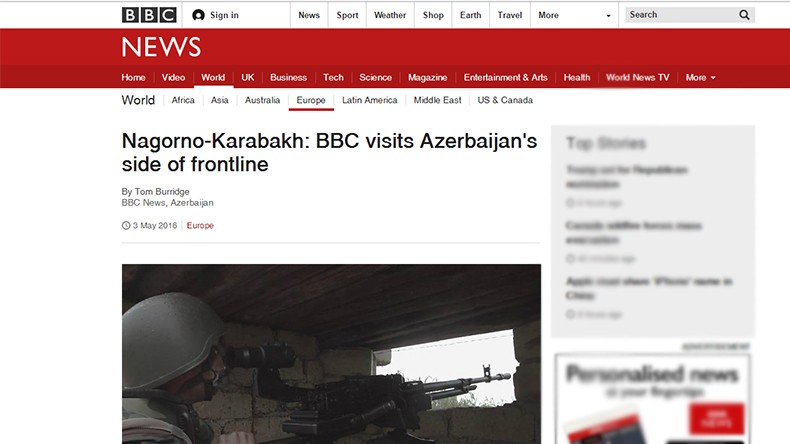
BBC’s reference to Azerbaijan proves it fails to deceive Western media
“Nagorno-Karabakh: BBC visits Azerbaijan’s side of frontline” article published on the BBC website on May 3 once again proved that no matter how hard Azerbaijani authorities try to deceive Western media, journalists won’t turn a blind eye to the obvious facts and turn into propaganda tools.
The author deems it necessary to point out Azerbaijani authorities allowed Western media representatives to visit Azerbaijan's side of the frontline only 20 days after the Four Day War, reminding that in April, the BBC had a chance to report from the other side of the contact line in Nagorno-Karabakh.
Afterwards, the journalist hints that Azerbaijani authorities limited their opportunities.
“Azerbaijan's government took us and other journalists on a carefully organised trip to several villages and two hospitals,” writes the author mentioning that clutching a photo of his brother, a man was waiting when their bus arrived.
It’s important to note that the author annihilated Azerbaijan’s propaganda efforts.
When using conflict related terminology, or propaganda theses, the author remained objective. For example, he avoids stating that Armenia is a part of the conflict despite Azerbaijani claims that Nagorno-Karabakh is backed by Armenia, “The ethnic Armenian authorities in Nagorno-Karabakh claim they are defending their right to self-determination”.
Summing up, we should agree that Western media and journalists despite certain interests remain true to their principles. This goes to prove that Azerbaijan’s calculations are wrong in all directions, considering its mistakes not only in the military and political, but also information sphere.
Armen Minasyan, political scientist
Newsfeed
Videos






























